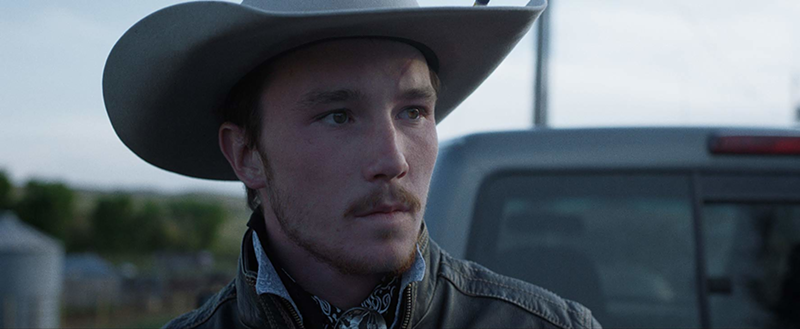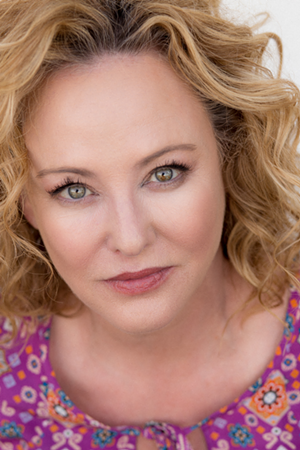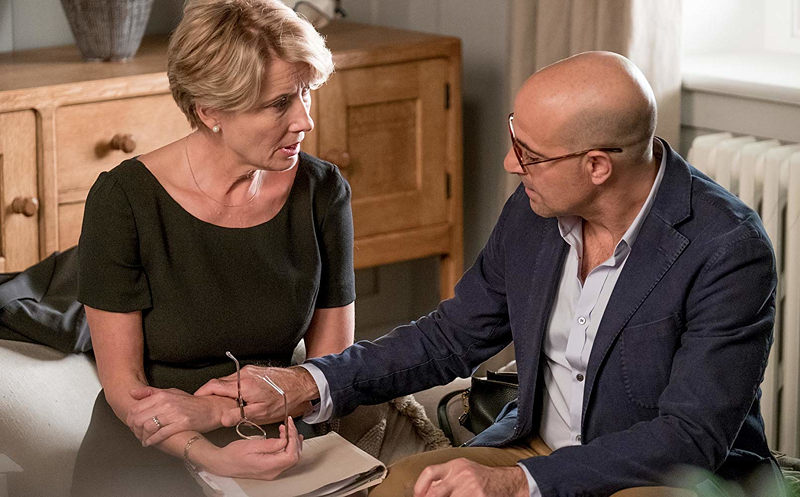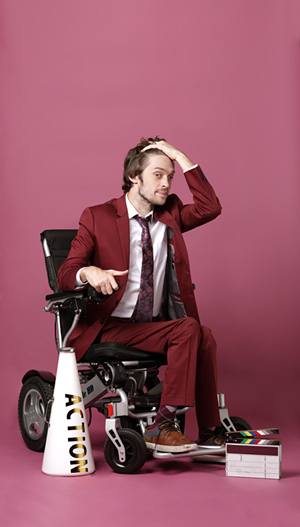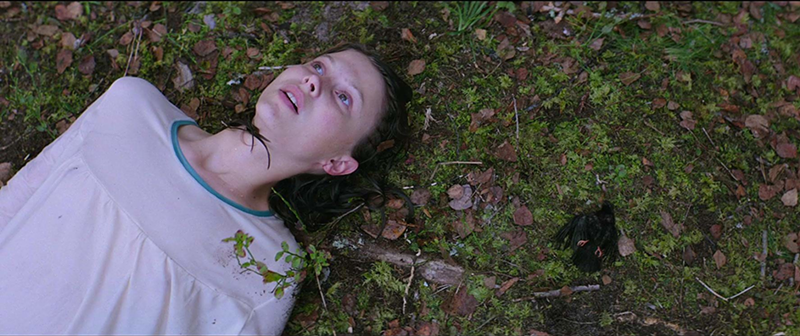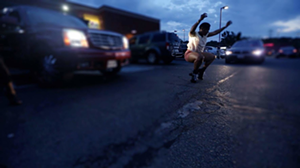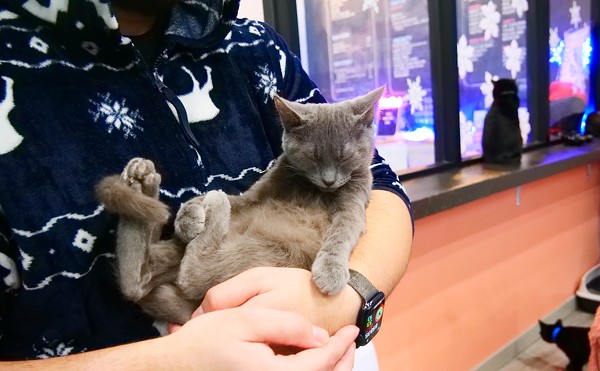The new Over-the-Rhine International Film Festival debuting next week is quite a change from the old ReelAbilities Film Festival. Or is it?
Since 2013, the nonprofit Living Arrangements for the Developmentally Disabled (LADD) organization has presented three local installments of the ReelAbilities Film Festival, the largest North American event dedicated to showing films that promote awareness and appreciation of people with disabilities. LADD began presenting it here after the Saul Schottenstein Foundation B — a nonprofit dedicated to “changing perceptions, fostering acceptance and promoting oneness” — first arranged for Cincinnati’s Mayerson JCC to present it in 2011. At one point, LADD even took over management of all the ReelAbilities festivals, except for the original one in New York City. (There are now 16 such fests in different cities.)
But this year, from Sept. 26-30, LADD is back with a different festival that it has created: the Over-the-Rhine International Film Festival. It has broken its formal ties with ReelAbilities, returning overall management of that to New York’s Marlene Meyerson JCC Manhattan.
The Over-the-Rhine International Film Festival will have almost 70 features and shorts and occurs at various sites throughout the city’s hippest neighborhood. (Last year’s ReelAbilities Film Festival, by comparison, used meeting spaces at the Duke Energy Convention Center.) Its films, many selected from submissions, were screened and recommended specifically for this festival by three contracted curators (including tt stern-enzi, CityBeat’s film critic).
“To have over 150 international films submitted online for our first year is a good number,” says Jack Geiger, the new festival’s managing director. “That allowed our curators to cull through. I think we went out to find the best curators to bring the best films to Cincinnati that wouldn’t come here normally. And we’re looking to show them in a very accessible environment that everyone can enjoy.”
Most importantly, the film festival now has a broader mandate to, as its website states, showcase “stories that celebrate the human spirit.” So LADD would appear to have forsaken specific subject-driven programming in favor of creating the “major film festival” that Cincinnati was missing, as then-ReelAbilities Director Debra Pinger told CityBeat in a 2017 cover story when she expressed hope that something like this would emerge. (She is now with the Nashville Film Festival.)
But, in actuality, this “new” fest is more an evolution and expansion of ReelAbilities than something completely different. The “Bold New Film (programming) Blocks” being introduced include Diversity, Freedom, Identity and Faith, but also Disability. So, despite the changes, disability is still a key component of this festival.
There are quite a few films that would have been very comfortable at ReelAbilities. Among them are: Being Rachel, a Canadian documentary about young people with developmental disabilities learning to write and perform a play about their lives; Dealt, a documentary about a blind 62-year-old man who is considered a master card magician; and the Midwest premiere of a new documentary, Take a Look at this Heart, by Ben Duffy (who came to the last local ReelAbilities Film Festival), about the concerns people with disabilities have about personal relationships.
At the same time, there are some films that probably wouldn’t have made ReelAbilities, such as the festival’s centerpiece presentation, the new documentary Sammy Davis Jr.: I’ve Gotta Be Me about the famous African-American Pop and Standards singer, actor and Rat Pack member (although Davis was blind in one eye, certainly a disability). Or, as part of the Identity block, there is the documentary To a More Perfect Union, about a pivotal case in the marriage equality movement in which octogenarian Edie Windsor sued the federal government for denying to her, after her long-standing female partner died, the benefits afforded to members of non-same-sex couples when one dies. (Activist and plaintiff in Obergefell v. Hodges, Jim Obergefell, and his attorney, Al Gerhardstein, will lead the post-screening Q&A.)
Also, under the Freedom category, is the documentary Conviction: The True Story of Clarence Elkins, about an Ohioan wrongly imprisoned for the rapes and murders of a grandmother and her 6-year-old granddaughter, and the role the Ohio Innocence Project played in eventually getting him exonerated and freed. And having a new Faith programming block, devoted to encouraging tolerance and understanding of differing beliefs, features the dramatic release The Children Act, starring Emma Thompson as a British High Court Judge wrestling with whether to order a teenage boy to have the blood transfusion that will save his life, even though he objects on religious grounds.
Some film celebrities are also slated to attend, including Virginia Madsen, Zach Anner, Tanika Ray, Drew Lachey, Carrie Preston and more.
All of this leads to a question — to what extent is the Over-the-Rhine International Film Festival meant to echo ReelAbilities, and to what extent is it meant to be different?
In answering that, Geiger revealed what may be the most radical and sociologically profound thing about this upcoming festival — it’s propelled by a new way of thinking about “otherness.” Disability is seen as a universal experience that unites us all, and an occasion for “celebrating the human spirit” as we become aware of its looming presence in all our lives, especially as we live longer.
“The way we’ve learned to discuss it, to explain and understand it, is that disabilities today are different than the disabilities of the past because we have autism (and) Alzheimer’s, as well as the physical aspect of returning veterans and people in car accidents,” Geiger says. “So it is something that talks about what we all have in common. The way we present it, disability knows not whom it’s going to affect next. Now, where are we going to go from there? By expanding our topics to include other journeys and stories, we’re able to tell a more unified and complete story.”
Yet at the same time, LADD’s chief executive officer Susan Brownknight says, “This festival is significantly different (than ReelAbilities) and the five tracks reflect that. I am thrilled to see some of these films that are showcasing untold stories in other communities. The vision is significantly different.”
It might be added here that there is a need — a political urgency — to combat the concept of “otherness” when it comes to persons with disabilities. Seeking commonality might save some lives. In the latest issue of Intelligence Report, published by the anti-hate organization Southern Poverty Law Center, there is a long story titled “The Invisible Hate Crime,” with the subhead “Violence against people with disabilities is more widespread than you think.” It points out that those with disabilities are at least two-and-a-half times more likely to experience violence; those with intellectual disabilities are sexually assaulted at a rate seven times higher than those without.
This is a big step for LADD. Established in 1975, it serves 500 adults with disabilities, has a $10 million budget, a staff of 150 employees and provides residential services at its headquarters on Victory Parkway. It saw an opening for a high-profile film festival in Cincinnati.
LADD has planned on a $750,000 budget for this new fest’s first year, as opposed to the $550,000 it earmarked for its 2017 ReelAbilities event. Among the sponsors listed on the film festival’s website is a dream team of civic, business and arts organizations. Here is a sample: At the $50,000 gold level, Fifth Third Bank and Great American Insurance Group; at the $25,000 silver level, Procter & Gamble, Dinsmore and Xavier University’s Brueggeman Center for Dialogue; at the $10,000 bronze level, UC Health, ArtsWave, WCET and even the Monteverdi Tuscany boutique hotel in Italy.
Seeking to give the festival artistic credibility, LADD has put together respected out-of-town jurors who will decide the Harris Award, with a $2,500 cash prize to the best film (plus reimbursements to the filmmakers if they attended the festival). It is named after Jeff and Susan Harris, who earlier this year announced a five-year $1 million challenge grant to help expand the festival. (There are also other awards.)
Geiger, who has a background in working with large companies and assisting and initiating startups, got interested in film because his son showed an early interest in it as a career. “That brought us into becoming a film family,” he says. “When we went to Sundance (in Park City, Utah) and saw what a festival could be to a community, it seemed a natural thing to bring to Cincinnati and say, ‘This has a huge economic impact.’ ’’
Geiger’s background seemed perfect for LADD, Brownknight explains. “LADD was looking for someone with startup energy and Jack fit the bill,” she says. “We needed someone with energy to make this have legs that can stand up in perpetuity.”
It seemed a natural decision to want to locate to Over-the-Rhine and take advantage of its renaissance and growing national name-recognition as a cultural and entertainment center.
“Not only do we want to bring the community together to watch films, we wanted to have a place where we could have conversations,” Geiger says. “After almost every film (presentation), we’ll have a talkback discussion. And if the group wants to continue conservation, our ambassadors will take them to an Over-the-Rhine establishment or one of our venues.”
The specific OTR venues that will show films are the Woodward Theater, the Mini Microcinema, the School for Creative and Performing Arts (also the box office location) and Chatfield College. There will also be a free evening screening of family film Christopher Robin at Washington Park on Sept. 26.
It wasn’t easy finding venues in the historic neighborhood, with its many 19th-century structures, to meet LADD’s strict accessibility requirements.
“As a matter of fact, it posed a bit of a challenge for us,” Geiger says. “We had a team and some consultants use wheelchairs to go out and look at over 17 locations and make sure they’re universally accessible. That means everyone enters and departs the same door, and some other issues. The idea is everyone deserves to be treated equally.”
For now, as the first Over-the-Rhine International Film Festival is set to begin, Geiger says he hopes people realize the films are supposed to be enlightening and pleasurable, but not banal.
“Film festivals are meant to be entertaining, but we’re not looking for strictly feel-good stories,” he says. “These are stories that celebrate the journey that we find ourselves on. We all struggle and we all celebrate at times. That’s what we’re trying to present.”
SUGGESTED VIEWING
There are way too many film screenings, discussions, guest appearances and miscellaneous other events at the Over-the-Rhine International Film Festival to provide a comprehensive guide. That’s what the festival’s website, otrfilmfest.org, is for. (It also has ticket information.) But here are several highlights worthy of your consideration, arranged in chronological order of their first presentations:
Conviction: The True Story of Clarence Elkins
7 p.m. Sept. 26 | SCPA Corbett Theater, 108 W. Central Parkway, Over-the-Rhine
This harrowing but ultimately hopeful documentary about Elkins, who was wrongly imprisoned for murder and rape and ultimately freed through the efforts of the Ohio Innocence Project, will be followed by a presentation from Cincinnati Opera singers of several songs from next season’s Blind Injustice opera about the Project and the people it helped free.
Three Films
6:30 p.m. Sept. 27 | Chatfield College, 1544 Central Parkway, Over-the-Rhine
Presented by the Over-the-Rhine Museum, these short films — The Spirit of Tafari, Good White People: A Short Film About Gentrification and These Old Buildings Raised Our Many Children — address issues of poverty, race and change in the neighborhood. (The museum just received a $50,000 grant from the Carol Ann and Ralph V. Haile Jr./US Bank Foundation to start a fundraising drive for a permanent home.)
Thelma
9 p.m. Sept. 27 | Mini Microcinema, 1329 Main St., Over-the-Rhine
From the highly regarded Norwegian writer/director Joachim Trier (Louder than Bombs, Reprise) comes this tale of a shy college student intensely drawn to a fellow female classmate, but her first love affair is accompanied by uncontrollable seizures and supernatural powers that deeply scare her.
Chromosome 21
6 p.m. Sept. 28 | SCPA Mayerson Theater, 108 W. Central Parkway, Over-the-Rhine
This Brazilian film is a love story about a girl with Down syndrome who becomes involved with a sensitive boy without it. Their involvement awakens the girl’s independence and passion, but also prompts community concern about a “couple out of standards.”
United Skates
Noon Sept. 29 | SCPA Corbett Theater, 108 W. Central Parkway, Over-the-Rhine A Documentary Audience Award Winner at this year’s Tribeca Film Festival, the film focuses on the fight to preserve endangered African-American-community roller rinks and to honor the underground artistic subculture they support.
Art21–Art in the 21st Century
1 p.m. Sept. 29 | Contemporary Arts Center, 44 E. Sixth St., Downtown
This is a free screening of an upcoming episode of the PBS series known as Art21, focusing on the outsider-art-supporting Creative Growth Art Center in Oakland, Calif. The center’s director, Tom di Maria, will be at the CAC to talk following the screening.
Wakanda Forever: The Black Panther Effect in Hollywood and in Our Community
2:15 p.m. Sept. 29 | SCPA LeCube, 108 W. Central Parkway, Over-the-Rhine This free panel discussion focuses on the positive impact of Black Panther, this year’s successful adaptation of the Marvel comic, and how its emphasis on actors of color in a blockbuster movie may change Hollywood trends.
To a More Perfect Union
4 p.m. Sept. 29 | SCPA Mayerson Theater, 108 W. Central Parkway, Over-the-Rhine
A documentary about the legal struggle of octogenarian Edie Windsor to win equal rights for same-sex couples, it will be followed by a Q&A with Jim Obergefell and his attorney Al Gerhardstein, who won a recent Supreme Court ruling (Obergefell v. Hodges) making same-sex marriages legal in the U.S.
Sammy Davis Jr.: I’ve Gotta Be Me
6 p.m. Sept. 29 | SCPA Corbett Theater, 108 W. Central Parkway, Over-the-Rhine
This new documentary about one of America’s greatest musical entertainers is being given the royal treatment by the festival. After the film, actor Obba Babbatundé will talk about Davis’ life, and then film festival awards will be given. Subsequently, those who bought tickets for the separate Rat Pack Bash will go to Music Hall for a dance party themed to “1960s Copa Room at the Sands Hotel.”
The Rider
6:30 p.m. Sept. 30 | SCPA Corbett Theater, 108 W. Central Parkway, Over-the-Rhine
This beautifully filmed and acted poetic drama, based on a true story, is one of 2018’s best, yet had only a short run in commercial movie houses. Here it gets another chance. It stars Brady Jandreau as a cowboy from the South Dakota Pine Ridge Oglala Lakota reservation, attempting a rodeo comeback after a bronco severely injures his head. Director Chloé Zhao was born in Beijing, making the film itself a testament to diversity.
The Over-the-Rhine International Film Festival takes place Sept. 26-30 at various venues in OTR. For more information and to buy tickets, visit otrfilmfest.org.

